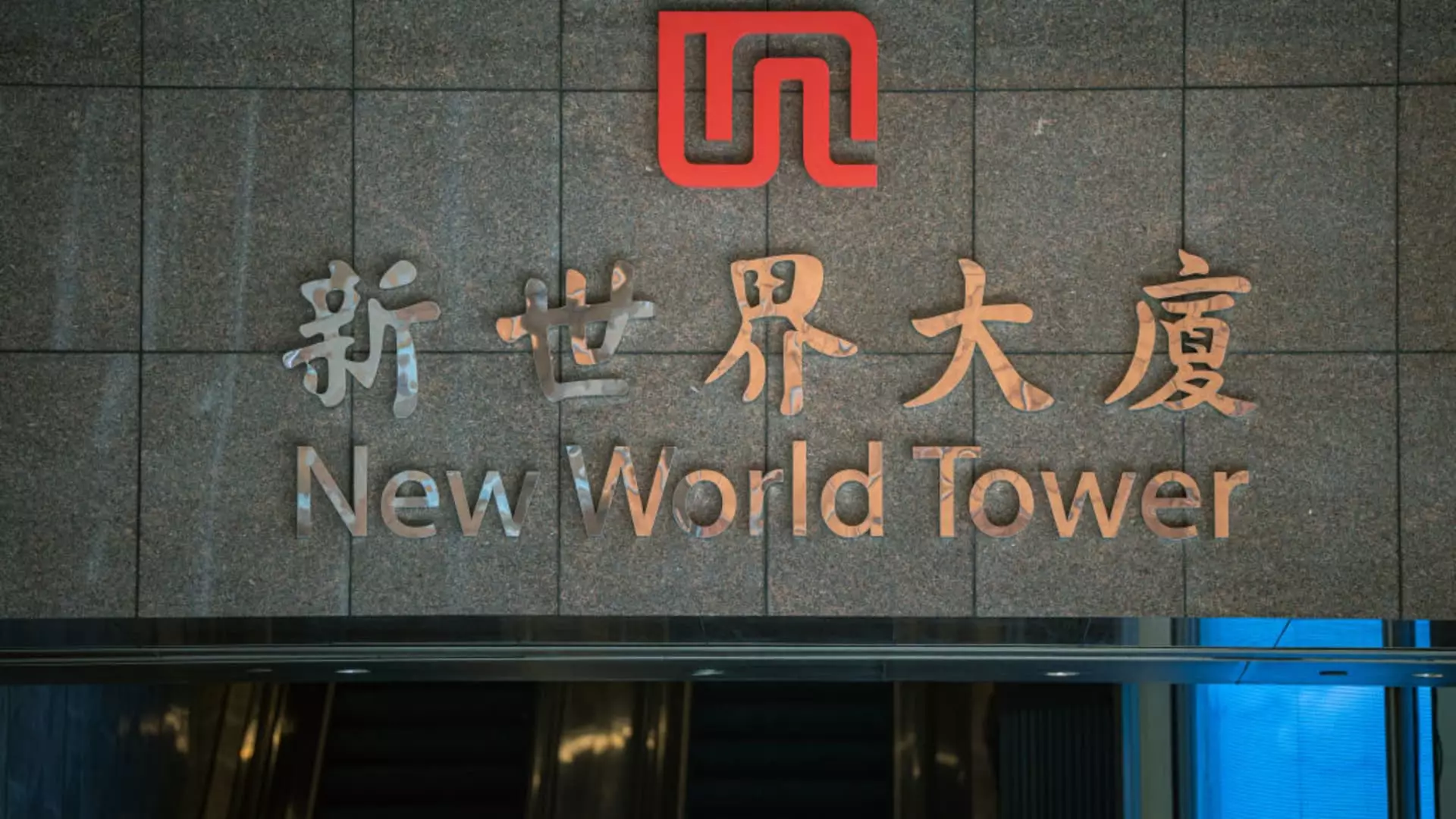Implications of Leadership Changes on Hong Kong’s New World Development

The recent resignation of Adrian Cheng from New World Development, a major player in the Hong Kong real estate market, has sparked significant interest among investors and analysts alike. Following Cheng’s departure, shares of the company soared by 23%, reflecting an immediate positive response from the market. This shift in leadership, as Cheng resigns to focus on public services and personal commitments, raises questions regarding the future direction of the company and the implications for its stakeholders. A notable aspect of this transition is the appointment of Chief Operating Officer Eric Ma Siu-Cheung as the new CEO, marking an atypical choice that opens up the leadership role to an outsider, a rarity in family-controlled conglomerates.
Eric Ma’s ascension to CEO is emblematic of a broader conversation about corporate governance in Asia, particularly within family-run enterprises. Allegations of nepotism often murky the waters of business leadership, and this change signals a potential pivot towards meritocracy. Alicia Garcia-Herrero, chief economist for Asia Pacific at Natixis, expressed that the traditional model of leadership in these companies might be insufficient for today’s challenging business environment. The expectation that family dynamics alone can guide a corporation is increasingly being questioned, particularly when performance falters. The future of New World Development may depend not just on the leadership transition but also on how effectively Eric Ma implements strategies to overcome prevailing economic challenges.
Market Reactions: Stimulus Measures and Improved Sentiment
The surge in New World’s share price could be attributed not only to the leadership change but also to a confluence of broader economic factors. Recent stimulus measures from China are likely contributing to renewed investor confidence across Hong Kong’s equity market. The central bank’s efforts to bolster the economy, coupled with government directives to stabilize the declining real estate sector, have created a more favorable environment for property developers. This relief package is a critical backdrop to the financial woes that New World Development is grappling with; the company is expected to face severe losses for the past financial year, including a projected loss of up to $2.6 billion. Such projections reveal the turbulent waters that the company must navigate, calling into question the sustainability of its recovery.
While New World Development’s acknowledgment of substantial financial losses underscores the challenges facing the property market in Hong Kong and mainland China, there remains a glimmer of hope. The new leadership might leverage the recent stimulus to innovate and adapt to economic shifts, thereby transforming the company’s approach to real estate development. Moreover, the willingness of the company to adapt its management structure could signal a transformative journey, potentially positioning New World Development not only for recovery but also for long-term resilience in the face of adversity.
The resignation of Adrian Cheng and the appointment of an outsider to lead New World Development could herald a shift in corporate governance and strategy that takes advantage of both internal potential and external economic stimuli. The unfolding narrative of this prominent Hong Kong developer is a critical case study in the resilience and adaptability required in today’s volatile market landscape.





